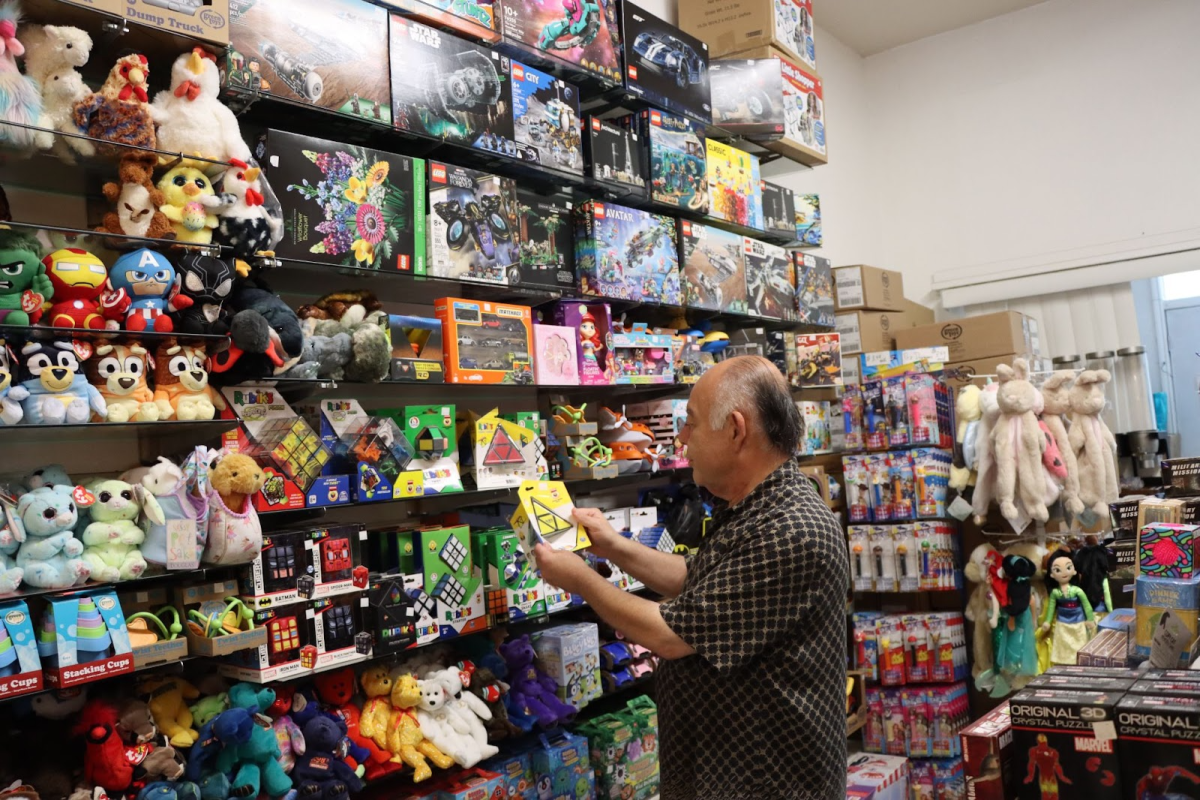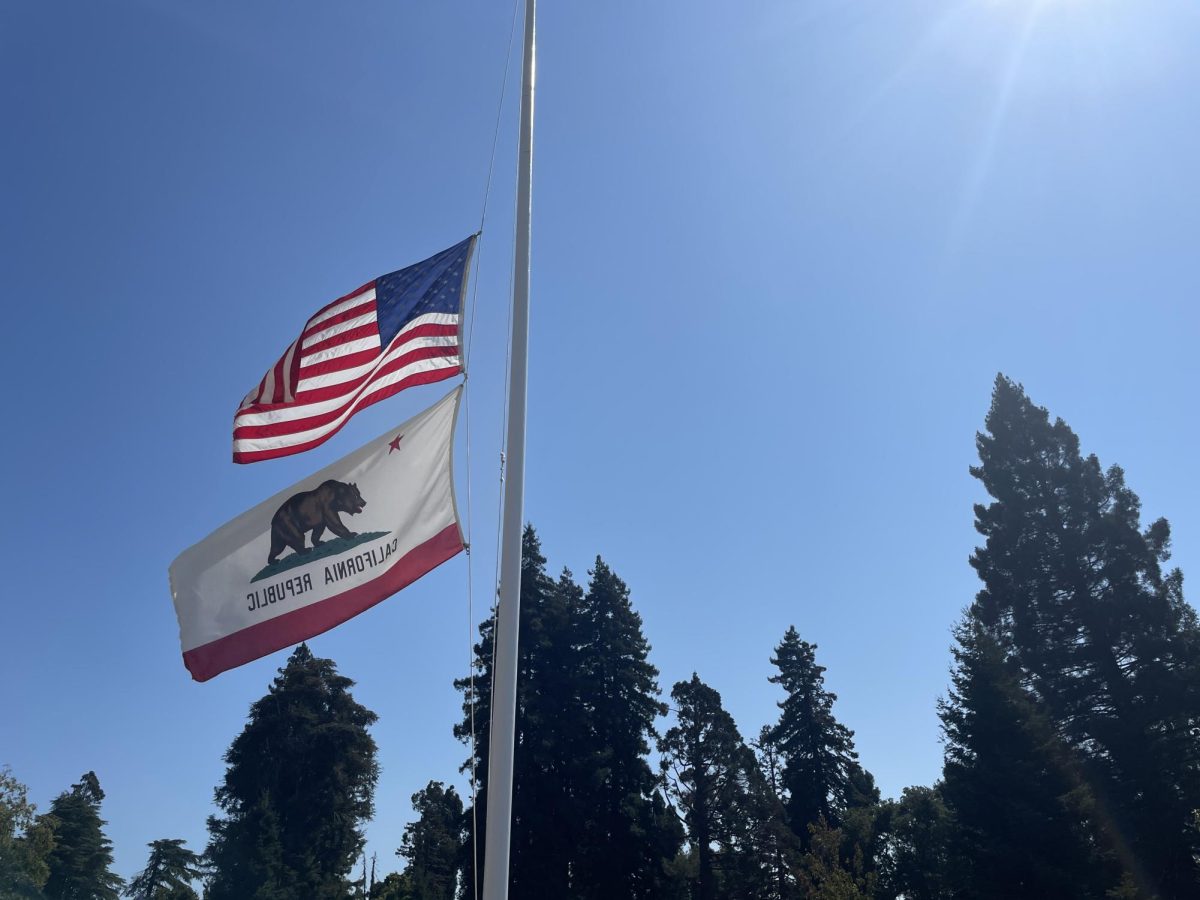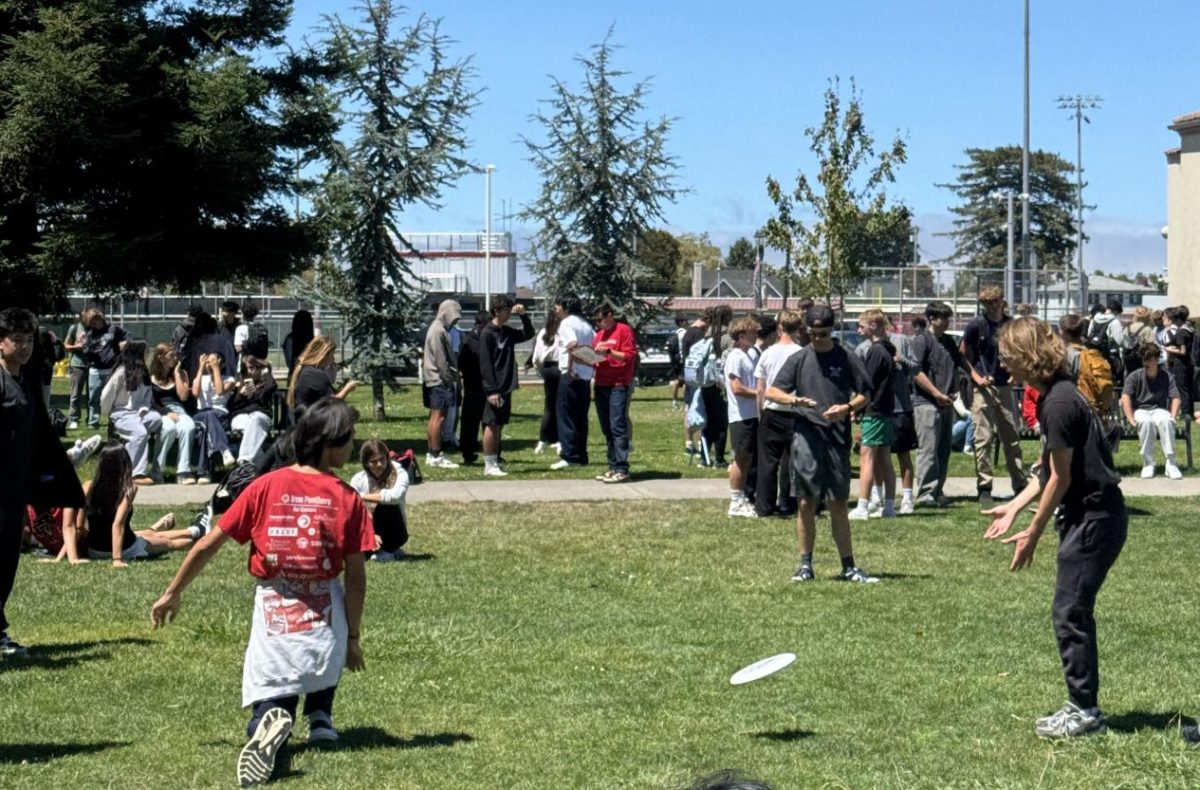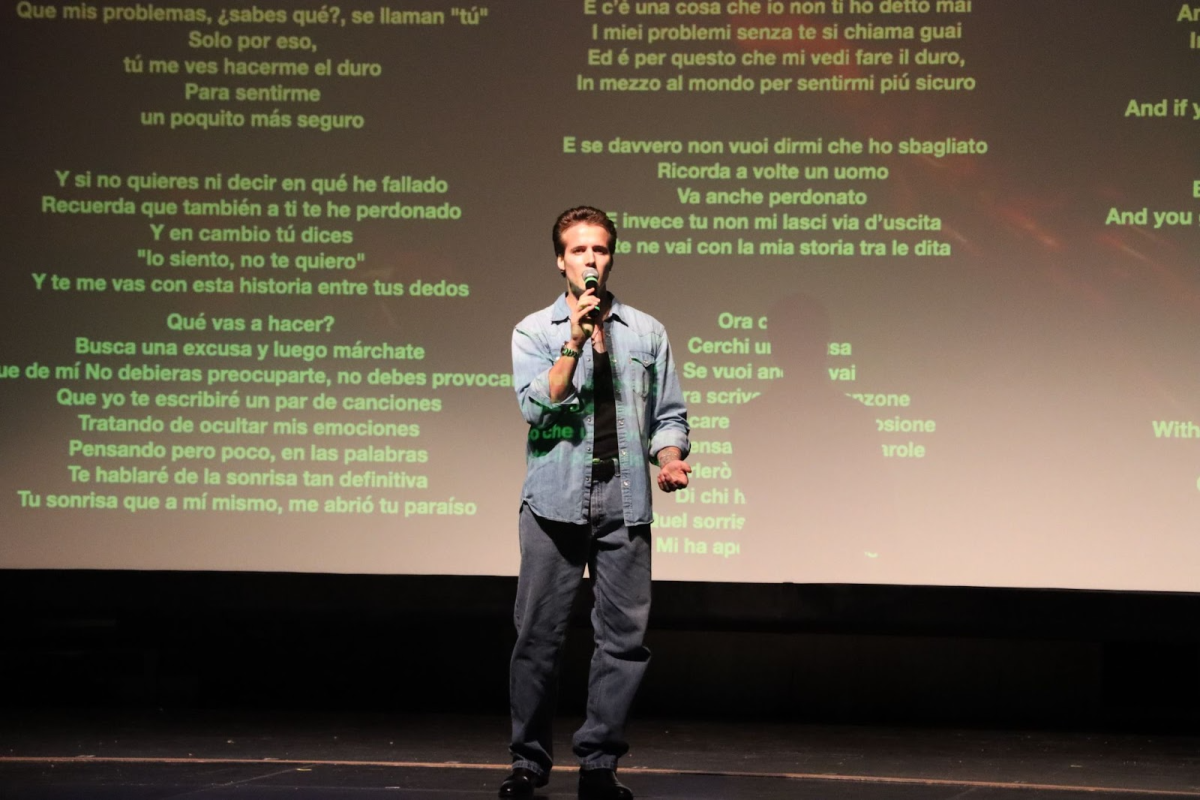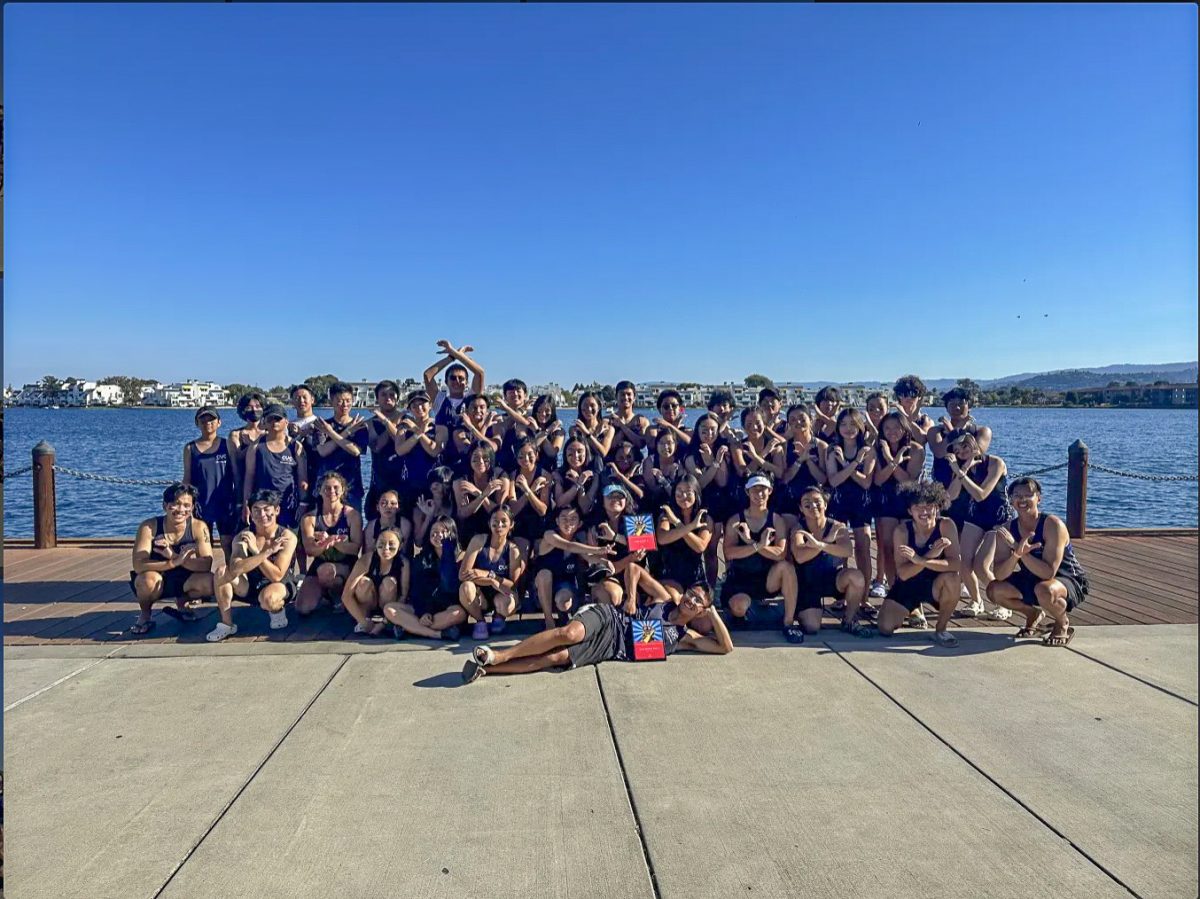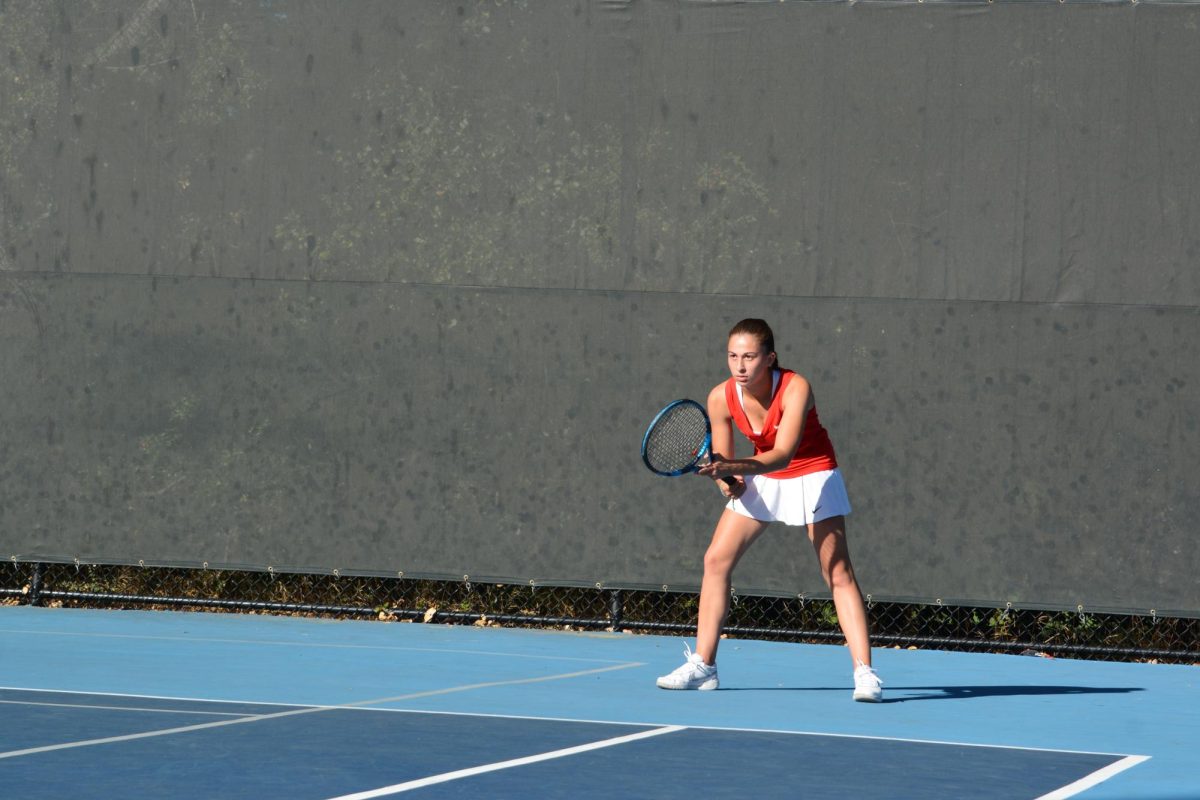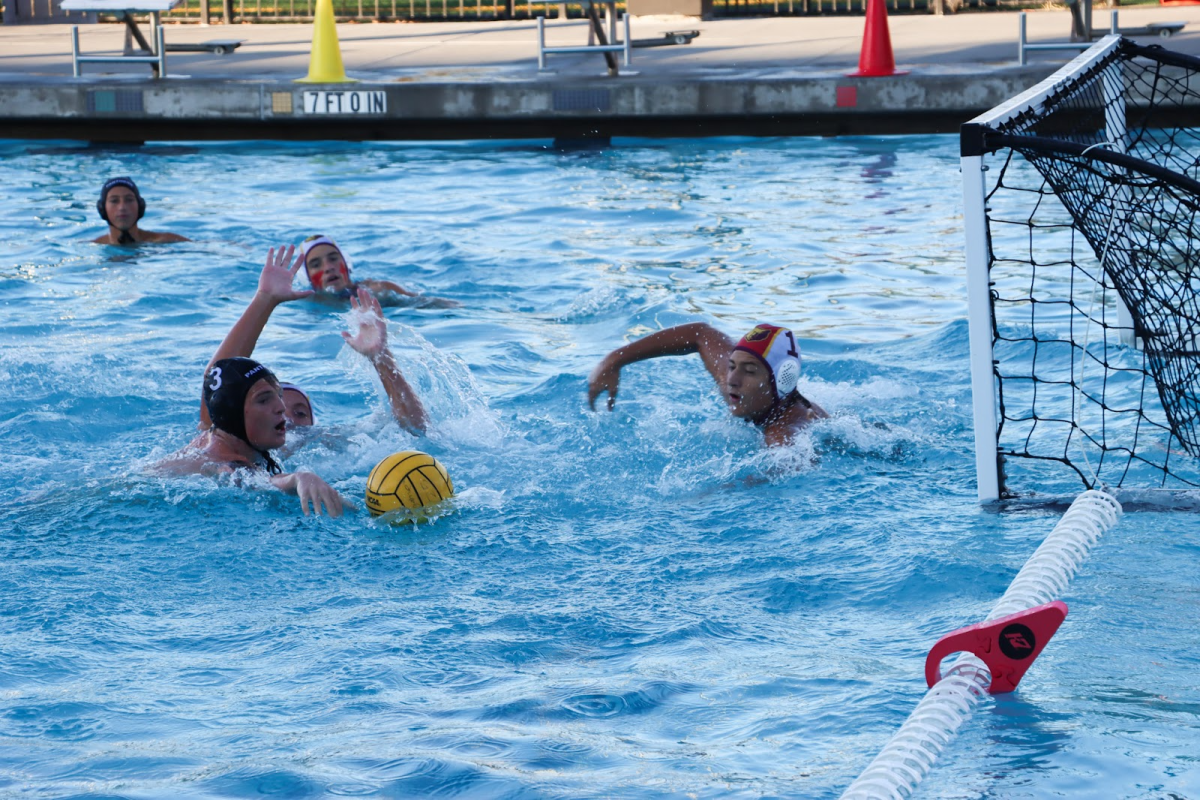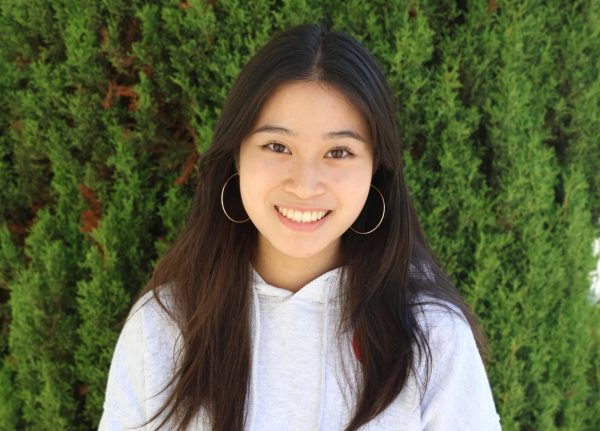It was any other day of dragon boat practice for sophomore twins Libbey and Lindsey Kwok, trudging towards the boat after grueling hours of conditioning. As newcomers to the San Francisco Community Youth Center’s (CYC) dragon boat team, they knew it was not one’s typical high school sport. But they were not prepared for the plethora of dragon boat terminology that would come with it, including the phrase “bailing out” — scooping swampy sludge and the occasional dead bird with milk jugs out of the boat.
And that’s barely grazing the surface of what dragon boat truly encompasses. It demands dedicating up to 14 hours per week for training, 12-hour-long competitions and extremely intense workouts ranging from squat pyramids to warm-up miles. Dragon boat is not a sport to be reckoned with.
“It’s definitely one of the most intense things [I’ve done],” Libbey Kwok said. “It just shocked me when I first started because [our typical practice consists] of a warmup mile, then an hour-long land workout which is usually Tabata, and then we go into the water for paddling, which is a workout on water. They just don’t waste any time. Even if you’re injured, you have a different set of workouts to do.”
With such rigorous workouts and high expectations from their coaches and captains, the twins said the commitment to their training has shifted their overall attitude.
“It’s definitely a mindset change,” Libbey Kwok said. “During practice and my overall experience on the team, I’ve learned to push myself a little more both physically and academically. Before this, I wasn’t doing physically strenuous activity, and so this pushes me in a different way. My overall mindset has just been a lot more positive and more goal-oriented.”
Synchronization is key to success in a sport that involves 20 people working simultaneously on the same boat. The secret behind such harmonization involves considerable bonding between team members.
“Grade level and what school you’re from isn’t really a thing,” Lindsey Kwok said. “We’re a community team, so we establish a really strong bond with each other. We all have a very close relationship with our coaches, and they’re very supportive. People go out to eat together and have lunches with our coaches for fun.”
Although it offers physical benefits and community building like any other sport, dragon boat is more than an after-school activity. As a family with a Cantonese background who previously resided in San Francisco’s Sunset district, this sport has allowed the twins to physically and spiritually reconnect with their cultural roots in San Francisco’s Chinatown.
“Whenever we visited Chinatown, the environment was very friendly, and we would openly speak Cantonese on the streets,” Libbey Kwok said. “And I guess we lost that connection because there’s not as strong of a community that really emphasizes celebrating that culture here. So after joining the team, it was more of a connection because we get to regularly go back to [San Francisco].”
For the twins, their overall experience has allowed them to become physically and mentally stronger, with the bonus of joining a community that’s rooted in Asian culture. As first-years on the CYC dragon boat team, they highly encourage anyone seeking a physical challenge and a community to bond with to join.
“It’s very community-based,” Lindsey Kwok said. “Even though we’re all split into teams, you can tell everyone is friends with each other. There’s a big dragon boat community in San Francisco, and many people who grew up doing dragon boat come back to coach or host competitions. It’s like a home away from home.”



